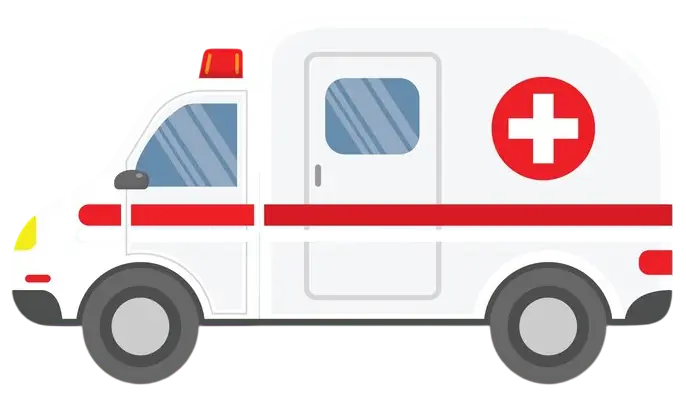Signs of a Heart Problem You Should Never Ignore
The heart is a fist-shaped organ that is forever beating in the chest cavity of an individual. It works tirelessly throughout life and does not take any breaks! The heart also has the capacity to continue to work, even when something is not quite right. That is exactly what happens when someone has heart disease. In India, heart disease is a significant public health issue as more and more individuals suffer from cardiovascular diseases, with each passing year.
Early Symptoms of Heart Trouble-
The body has a way of speaking up before things go really wrong. Sometimes, it’s quiet. Easy to miss. But noticing those little changes early could protect you from something serious. So, let us look at some symptoms that need immediate attention, below-
- Chest discomfort, which can feel like you are dealing with a particularly bad bout of indigestion, severe pain, or shortness of breath.
- Fatigue is another one. But not the kind that comes after a busy day. You might feel drained, heavy, or like everything takes more effort than usual. That’s your body struggling to get enough oxygen.
- Radiating pain in your left arm from the chest. The pain seems to move outward from the chest to the arm.
- When you feel dizzy randomly, it is because your blood pressure is dropping.
- Some people may have jaw aches or neck pain, too, but this is a pretty rare symptom.
- Breaking into a cold sweat when you have a history of heart disease may be worrisome. Talk to your doctor if that happens.
- Fluid retention in your limbs is a sign of your heart not working properly, which can impact your kidneys negatively.
- Palpitations or irregular heartbeats are a classic symptom.
Signs and Symptoms of Heart Failure-
Heart failure means the heart is not working as strongly as it should. Still beating, but it cannot pump blood the way the body needs. A common warning sign is swelling. This may show up in the legs, ankles, or feet. It happens because the heart is not moving blood properly, so fluid starts to collect. Some people develop a cough or feel wheezy. This might include mucus that looks white or slightly pink, which could mean fluid is moving into the lungs. Breathing may also become more difficult. It can be hard to fall asleep at night.
These symptoms don’t confirm heart failure on their own. But they are worth getting checked.
Heart Attack Warning Signs-
A heart attack happens when blood flow to a part of the heart is blocked, and that can damage the heart muscle. A lot of people imagine heart attacks as dramatic and obvious, but in reality, they can be much more subtle. The classic sign is chest pain or discomfort. It usually happens in the center or left side of your chest and can last a few minutes or come and go. Shortness of breath is another big one. It might hit you while you’re walking, or even while you’re sitting still. You might also feel sick to your stomach or feel light-headed.
Conclusion-
The heart is strong, but not unstoppable. It usually gives us signs when things aren’t okay. If you’re feeling tired for no clear reason, struggling to catch your breath, or noticing swelling or pressure in your chest, talk to your doctor. Heart problems are often easier to manage when caught early. When you’re in doubt, get help. That choice could change everything! At Medone Hospitals, we’re here to guide you with care and expertise. From diagnostic tests like ECGs, echocardiograms, and Holter monitoring to advanced treatments such as angioplasty, stenting, and pacemaker insertion, we offer a range of heart care services under one roof. Our expert team of cardiologists personalises your treatment plan to ensure you get the best possible care.
FAQs
Yes. Diets rich in whole grains, fruits, vegetables, lean proteins, and healthy fats are strongly associated with better heart health. Avoiding excessive salt, sugar, red meat, and processed foods also helps maintain heart health.
A heart attack is a sudden blockage of blood flow to the heart, which can cause part of the heart muscle to be damaged or die. Heart failure, on the other hand, is a chronic condition where the heart is weakened and cannot pump blood effectively. Both are serious but differ in how they affect the heart.
While chest pain is common in both, women may experience less typical symptoms during a heart attack, such as nausea, back or jaw pain, extreme fatigue, and shortness of breath without chest discomfort. This often leads to delays in diagnosis, so it is important to recognize these differences.
If you experience chest pain that lasts more than a few minutes, or if it comes and goes, along with symptoms like shortness of breath, sweating, nausea, or pain in the arms or jaw, seek emergency care immediately. It is always better to be cautious with chest-related symptoms.
Many heart issues are preventable with lifestyle changes. Regular exercise, a healthy diet, not smoking, managing stress, keeping cholesterol and blood pressure in check, and maintaining a healthy weight all contribute to long-term heart health. Annual checkups and early screening are also important, especially if you have a family history of heart disease.


